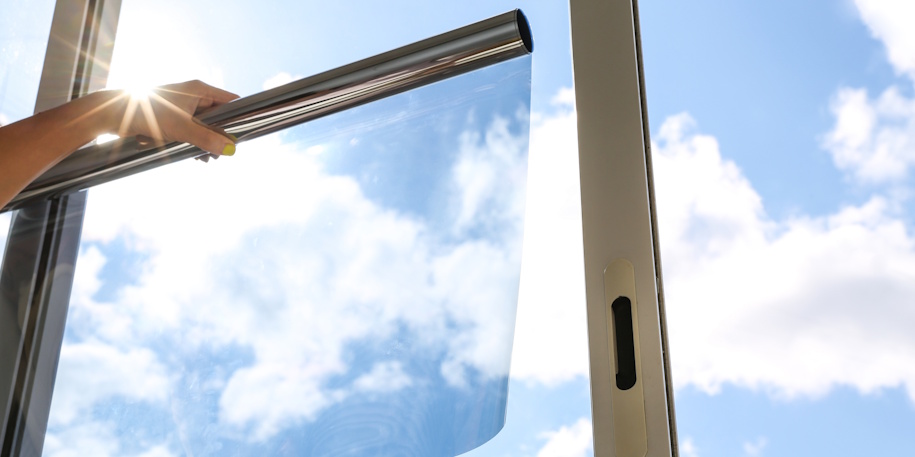Number 3 May Surprise You!
Albert Einstein famously said, “Assumptions are made, and assumptions are wrong.”
You may assume that you know the facts about residential window tinting, but we’re here to challenge those assumptions.
Keep reading to discover seven facts about window tint and change your beliefs.
1. Window Tint Can Actually Make Glass Stronger
Did you assume that residential window tint simply darkens glass? It does do that, but it also acts like an invisible shield.
Certain types of film can make your windows more resistant to impacts. This means if something hits your tinted windows – like a baseball from a neighborhood game – the film will help hold the glass together rather than allowing them to scatter.
It’s a safety feature that is particularly valuable during severe weather events or accidents. It reaches its peak strength several days after installation, when the bond has had time to cure.
2. The Real Science Behind Window Tint and Energy Bills
Are you operating under the assumption that window tint is purely cosmetic? In reality, window tint can lower your utility bills. Modern films use advanced ceramic or metallic particles that selectively filter different wavelengths of light. These microscopic particles allow visible light to pass through while blocking infrared radiation, the main culprit behind heat gain.
This explains why rooms stay bright yet cool, leading to lower heating and air conditioning costs without sacrificing natural light. The technology works year-round, providing insulation during winter months by reducing heat loss through windows.
3. Hidden Benefits Of Window Tint for Your Furniture
So window film is all about energy and safety, right? Nope! It also protects your furniture from an invisible enemy: UV rays. These are rays from the sun that can break down and fade your home furnishings.
Premium tint products can help extend furniture life by blocking up to 99% of these harmful rays. This preservation effect makes the cost of residential window tinting more manageable when you factor in the savings on replacing your furniture, artwork, photographs, wood floorings, and even wallpaper.
4. Window Tint Installation Seasons: A Myth Debunked
Many people think window tint can only be installed during warm months. This misconception stems from older installation techniques and technology. Modern window films can be installed year-round because they’re applied to interior surfaces. The controlled indoor environment allows proper curing regardless of outdoor temperatures.
Professional installers use specialized solutions and techniques that work effectively in any season. The only real consideration is maintaining a dust-free environment during installation, which can actually be easier during winter months when windows typically stay closed.
5. Window Tint and Plant Life
You might assume that less sunlight coming through your windows will kill your houseplants. Here’s good news: modern window films are plant-friendly.
Film blocks harmful UV rays from the sun, while allowing the specific light wavelengths plants need for photosynthesis to pass through. Your green friends will thrive with proper window tint. They might even do better because they won’t experience heat stress during peak summer hours.
6. Smart Technology and Window Tint Integration
If you recall, older metallic window tint blocks cell phone signals. You might assume that’s still a problem, but the industry solved this issue a long time ago.
Modern films, like ceramics, don’t interfere with Wi-Fi signals or mobile reception, so you don’t have to worry about connectivity in your home.
7. The Long-Term Investment Value Of Residential Window Tinting
Many home upgrades’ returns on investment are based on the increased property value they provide, such as siding or a kitchen remodel. But you can actually recoup the cost of residential window tinting.
High-quality window film can last up to 20 years, and many homeowners see a return within three years.
- Extending window life. Film can prevent seal failure from heat stress and upgrade your windows’ performance without the high cost of replacement windows.
- Reducing energy consumption. You can save money on your heating and cooling bills thanks to its insulating properties in the winter and heat-blocking technology in the summer.
- Preservation of furniture and finishes. Replace your home decor and fixtures less frequently. By blocking UV rays, window tint prevents damage to your interior investments.
Now You Know All About Tinted Residential Windows!
Like Albert Einstein, you now realize your assumptions about residential window tinting were wrong. You’re ready to go out into the world with your newfound knowledge and make informed choices about how to best take care of your home.









